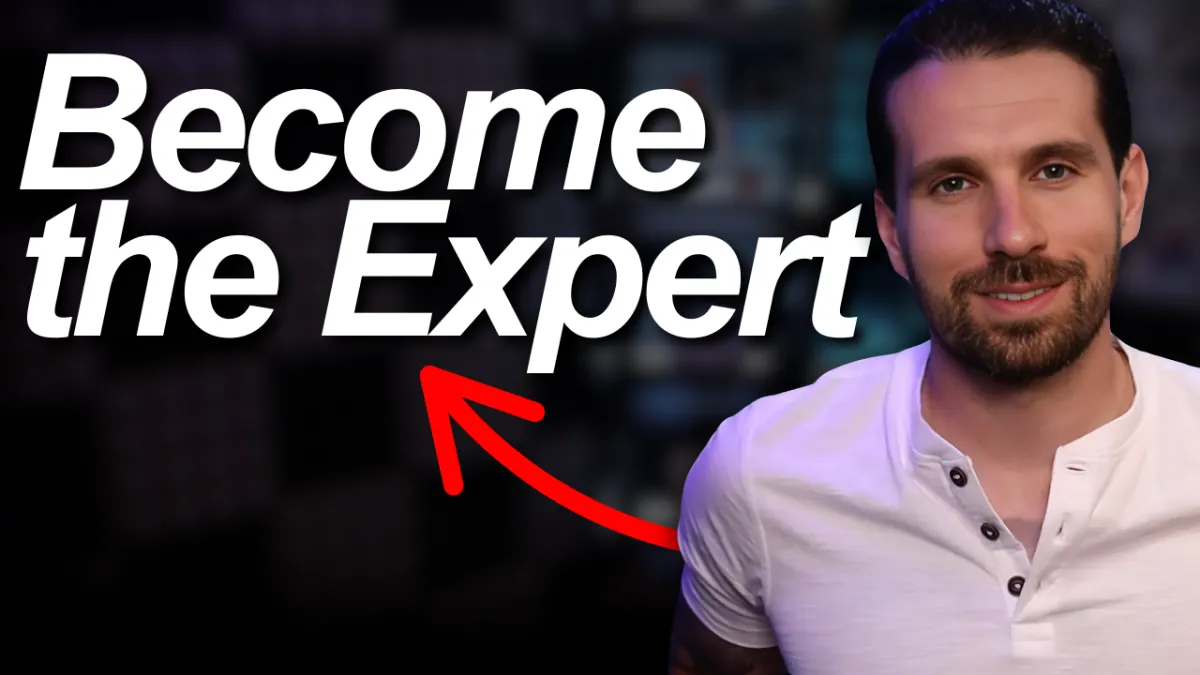Check out my YouTube channel for even more content HERE

What Are the Core Sales Skills Every Mortgage Broker Needs for Success?
If you’re a mortgage broker or mortgage adviser looking to boost your results, mastering a set of core sales skills is non-negotiable. The difference between struggling and thriving in the mortgage industry almost always comes down to how well you can sell—whether that means winning new mortgage clients, retaining existing clients, or growing your business through referrals.
But what exactly are the essential sales skills every mortgage professional needs? And how do you develop them in a way that actually gets results? Let’s break down the must-have sales skills for mortgage brokers and show you how to implement them in your day-to-day work.
Why Is Building Rapport Quickly Essential for Mortgage Brokers?
Why do the most successful mortgage advisers seem to “click” with their clients straight away? The answer is simple: building rapport quickly is a core sales skill that sets the tone for trust, transparency, and successful long-term relationships. For mortgage brokers, this is especially important—your clients are about to make one of the biggest financial decisions of their lives.
How can you build rapport fast? Start every discovery call with a clear agenda and intention. This helps clients relax, knowing what to expect. Ask open, mortgage-related questions like “How long have you been looking for a mortgage?” or “What made you choose to speak to a broker today?” Listening more than you talk and mirroring the client’s energy is key to building genuine trust and rapport from the first conversation.
How Can Mortgage Brokers Master Deep Listening for Better Sales?
Why is deep listening one of the most overlooked sales skills in the mortgage business? Because too many advisers are thinking about their own next point instead of truly hearing the client’s needs. For mortgage brokers, deep listening means understanding the emotions behind the numbers—and using that understanding to offer the right mortgage solution.
How can you listen more effectively? Use phrases such as, “What I’m hearing is…” or “Let’s dig a bit deeper into that…” This not only makes clients feel valued but also helps you pick up on hidden concerns, making it easier to recommend the right mortgage product.
How Do You Explain Complex Mortgage Products in Simple Terms?
Why do some mortgage professionals convert more leads than others? It often comes down to their ability to simplify complex information. Mortgage products and lending criteria can sound overwhelming to the average client. Your job as a mortgage adviser is to cut through the jargon and explain everything clearly.
What’s the secret? Use plain English, analogies, and real-world examples. For instance, instead of saying “LTV,” say “the percentage of your home’s value you’ll borrow.” Regularly check in with, “Does that make sense so far?” so clients don’t feel lost or intimidated.
What Types of Strategic Questions Should Mortgage Brokers Ask?
Why does the order and style of your questions matter in mortgage sales? Because strategic questioning uncovers needs, builds credibility, and paves the way for a successful recommendation. The best mortgage brokers use a combination of open and closed questions to guide the conversation.
What questions work best? Start with open questions about the client’s goals (“What would owning your first home mean to you?”), then move to closed questions to clarify details (“Have you already got an Agreement in Principle?”). This approach demonstrates empathy and professionalism—two key qualities in the mortgage industry.
How Should Mortgage Advisers Handle Objections Before They Even Arise?
Why is objection handling such a critical sales skill for mortgage brokers? Because addressing worries about fees, rates, or lender choice before they come up positions you as an expert, not just a salesperson. It’s about anticipating common concerns and removing barriers before they become sticking points.
What’s a proactive way to handle objections? Rehearse your responses to typical concerns like “Why should I pay a broker fee?” or “Can I get a better rate elsewhere?” When you raise and answer these before the client does, you build authority and make the path to “yes” much smoother.
How Can Mortgage Brokers Use Storytelling and Case Studies for Greater Impact?
Why is storytelling a powerful sales skill for mortgage advisers? Because facts tell, but stories sell. Sharing real case studies shows clients that you’ve helped people just like them achieve successful outcomes.
How to use storytelling for sales success: Share brief, relevant examples during calls: “I worked with a couple in a similar position who…” This approach helps prospects picture themselves succeeding with your help. Don’t just collect testimonials—write up proper case studies that explain the challenge, your solution, and the outcome. Case studies are more persuasive than testimonials alone and can be used on your website, in your email marketing, or during the mortgage advice process.
Why Is Confidence in Presenting Fees and Value Important for Mortgage Success?
Why do many mortgage brokers struggle with fees and pricing? Because if you’re not confident about your value, neither will your client be. Presenting your fee assertively—and being able to explain what clients get in return—is a vital sales skill that separates high-earning mortgage professionals from the rest.
How can you improve? Practise saying your fee out loud, explain it as part of your standard process, and never apologise for it. Remember: clients who pay for advice expect more and usually value it more highly.
How Can Mortgage Brokers Stay Organised and Ensure Consistent Follow-Up?
Why is process discipline just as important as people skills for mortgage brokers? Because a great mortgage adviser isn’t just a great talker—they’re consistently organised, reliable, and timely with follow-ups.
How to stay on top: Use digital calendar links to book appointments, follow up promptly after every call, and create standard operating procedures (SOPs) for routine tasks. This keeps the sales pipeline moving and ensures every client feels looked after.
How Does Authenticity Help Mortgage Professionals Build Client Trust?
Why is authenticity a secret weapon for mortgage sales? Because people buy from people they like and trust. The best mortgage advisers let their personality shine through—sharing relevant personal experiences, showing strategic vulnerability, and never pretending to be someone they’re not.
How to show authenticity: Don’t be afraid to say “I don’t know, but I’ll find out.” Share your own property journey or challenges you’ve helped others overcome. The more genuine you are, the stronger your long-term client relationships will be.
What’s the Real Difference Between Average and Top-Performing Mortgage Brokers?
In summary, the mortgage advisers who consistently grow their business have all mastered these core sales skills:
Rapid rapport building
Deep, active listening
Simple explanations of complex products
Strategic questioning
Confident objection handling
Storytelling and case studies
Presenting fees with confidence
Organised, reliable follow-up
Authentic, honest communication
If you’re serious about standing out as a mortgage broker in the UK, invest time in developing these skills. Not only will you boost your conversions and retention, but you’ll build a reputation as the go-to mortgage adviser in your area.
